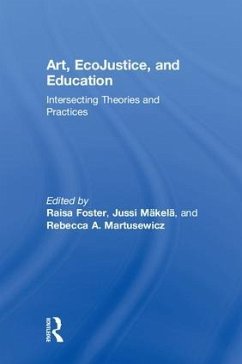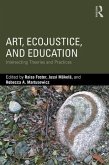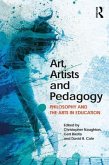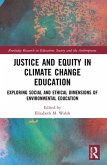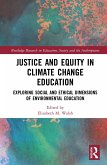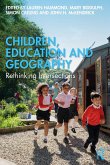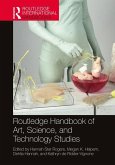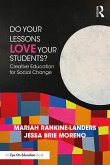Emphasizing the importance of contemporary art forms in EcoJustice Education, this book examines the interconnections between social justice and ecological well-being, and the role of art to enact change in destructive systems. Artists, educators, and scholars in diverse disciplines from around the world explore the power of art to disrupt ways of thinking that are taken for granted and dominate modern discourses, including approaches to education. The EcoJustice framework presented in this book identifies three strands-cultural ecological analysis, revitalizing the commons, and enacting imagination-that help students to recognize the value in diverse ways of knowing and being, reflect on their own assumptions, and develop their critical analytic powers in relation to important problems. This distinctive collection offers educators a mix of practical resources and inspiration to expand their pedagogical practices. A Companion Website includes interactive artworks, supplemental resources, and guiding questions for students and instructors.
"This book is an exciting international exploration of how EcoJustice Education can, and must, intersect with Art and Art Education in order to address the devastating ecological crises in which we find ourselves. This collection gives educators much-needed resources to begin to understand how we can use art to creatively intervene in the harmful assumptions and practices that are impacting humans and the more-than-human world."
Alison Happel-Parkins, University of Memphis, USA
"This book offers strong ecocritical perspectives that reframe dominant assumptions in Western industrial culture. This timely anthology pushes EcoJustice scholars and educators to think-and feel-beyond the human-centered confines of the modernist assumptions constituting 'what is' and the possibilities of 'what ought to be' in regards to the role of art, and artistry, in re-imagining education."
John Lupinacci, Washington State University, USA
Alison Happel-Parkins, University of Memphis, USA
"This book offers strong ecocritical perspectives that reframe dominant assumptions in Western industrial culture. This timely anthology pushes EcoJustice scholars and educators to think-and feel-beyond the human-centered confines of the modernist assumptions constituting 'what is' and the possibilities of 'what ought to be' in regards to the role of art, and artistry, in re-imagining education."
John Lupinacci, Washington State University, USA

